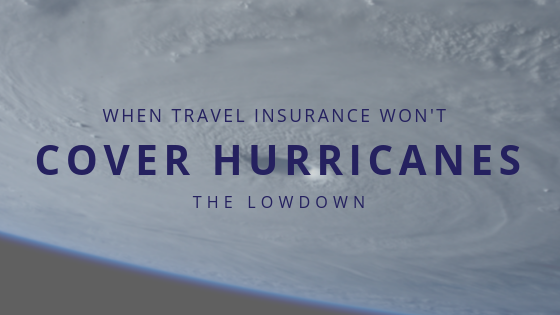Hurricane season is an unpredictable time of year for travel. Your clients are at a higher risk of bad weather, flight and trip cancellations. The good news is, travel insurance was designed to help for these instances. But are there times travel insurance can't reimburse travelers?
Travel insurance is meant to protect your clients from losing out on their vacation investment. But like any other insurance product, there are policy limitations your clients should know about.
Let's get into 3 times travel insurance won't cover your client's trip cancellation during hurricane season.

1. After the storm is named.
Travel insurance works similarly to many other forms of insurance: it's designed to protect insureds against the unforeseen. If your client declined travel insurance during the booking process, but decides to buy coverage once a storm is named, they're out of luck.
This is one more selling point for travel professionals, you never know what could come up from the time your client books to the time your client departs.
2. Prior to the policy effective date for hurricane benefits.
Every travel insurance plan has a policy effective date for its benefits. Trip cancellation benefits are typically effective at 12:01 am the day after purchase, but some benefits are time-sensitive.
Typically, we are referring to benefits like pre-existing condition waivers and cancel for any reason when we talk about time-sensitive benefits. But that isn't always the case. Sometimes, benefits are time-sensitive because the policy must be effective for a certain period of time in order for those benefits to be used.
A perfect example: trip cancellation due to hurricanes. Most travel insurance plans that offer a hurricane warning benefit must be active for 14-21 days before the insured is eligible to use their policy to cancel because of a hurricane warning.
If your clients choose not to purchase travel insurance early in the booking process but rushes to get coverage because an unofficial storm may hit their destination, they're out of luck. Their plan won't be effective long enough to be eligible for coverage.
Insurance companies have exclusions like these to prevent fraud. In this specific example, the storm is foreseen – even if it was not officially named by NOAA. Again, insurance covers the unforeseen.
